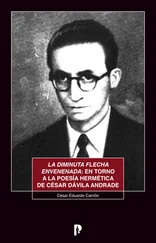Nevertheless, they seemed so inoffensive, those grasshoppers in perpetual motion. He watched them flapping around like madmen, leaping from the street to the cornices, running across the rooftops, slipping through every crack — even where there weren’t any cracks. They crowded together, they dispersed, they stopped and spread out their arms like antennae. Suddenly they would all gather in angular shadows; an instant later they were legions swarming in the silvery glow through which their passage left a green, pink, and violet wake.
There was one thing they never did: retreat. The advance was uneven, as was the blotch of invaders across the checkerboard of houses and streets, but there was a method, and it was a very simple one: to continuously advance, to keep moving in the same direction. Everything was uneven: the movements, the leaps, the meetings and separations; that chaos, by contrast, highlighted the strict mechanics by which they were “covering” territory. It was the irreversibility that gave the scene its threatening oneiric tone. Like in a dream, everything seemed to be on the point of vanishing but at the same time ablaze with persistent reality. It was as if at every point in the unevenly illuminated darkness, valves opened, letting in impossible beings, then closed with a velvety plunger that stopped them from turning back.
El Manco had to keep reminding himself that this was not a game and that he wasn’t there to amuse himself but rather to monitor events and issue warnings, so he rushed to transmit the coordinates of the incoming tide; he also reported on which points were vulnerable along the barricade of automobiles and marksmen, though these were fewer and fewer. The impression he got, from his privileged perspective, was that the entire town had gathered at the Line of Defense, where there was an extraordinary amount of activity. People were arriving in their cars and leaving them parked two or three deep, often blocking the side streets completely. He sent a warning out over his walkie-talkie: it would be impossible to effect a quick retreat, in case that became necessary. He insisted, because he had the feeling that they weren’t listening to him. Then came a fairly hysterical exchange of opinions with somebody down below.
But when he turned back to look beyond the Line, at the neighborhoods that had already been invaded, he really had a fright. The advance had taken on a new dimension, had changed both quantitatively and qualitatively. All of a sudden the army of the living dead showed itself to be much more numerous. The huge mass of stragglers had reached the ones in front, overwhelming them like a solid, majestic ocean wave washing over drops of dew. And it continued advancing, destroying everything in its path, now without pausing, which was understandable because the last blocks before the Boulevard and the Plaza had already been evacuated, and perhaps also because they could smell the throngs waiting for them… He shouted into the radio: they were coming, they had arrived, hand-to-hand combat was imminent.
He wasn’t lying. He was still talking when the first shots rang out. The people lying in wait behind the vehicles, who’d already had their fingers on the triggers for some time, started shooting as soon as they had the first living dead in their sights, and since there were so many people aiming at the even more numerous capering ghouls pouring forth from the deserted streets, there were multiple salvos, and after the first few, they started firing continuously. The crowd that had gathered in a compact mass behind the marksmen let out a unanimous shout, like the audience at a rock concert when, after a long wait, they see their idols finally coming out on stage. And there was something about the dead that was similar to rock musicians, with their disheveled appearance, their stringy hair, their spastic stride, and the arrogant self-confidence of knowing they are stars and that their mere presence satisfies everybody’s pent-up expectations. That’s where the similarities ended and the differences — horrific — began. Somehow everybody, even those keeping a Winchester rifle with nine rounds warm in their hands, and even more so the bystanders crowding behind them, had sustained doubts about the truth of what was going on. Nobody liked their doubts to vanish; the truth threw them off. And by stepping into the white circles shed by the mercury lightbulbs of the streetlights along the Boulevard, the arriving swarm showed off a reality that was frankly disagreeable. Rotten rags, exposed bones, skulls, femurs, phalanges, strips of cartilage hanging off like the remnants of an old collage. as well as the determination, the hunger, the race to see who would get there first.
At the beginning nobody was too surprised that they just kept advancing. After all, that was the direction they’d been going in, and those waiting were doing so in the hope of seeing them: the closer they got, the better they’d see them. But at the same time as their curiosity was being satisfied, an alarm was raised, preceded by fleeting incomprehension. What was going on? Although everybody knew what was going on, the question was justified: the irresponsibly festive atmosphere that infused the crowd (because it was Saturday night, because it was an occasion for a large community gathering, so much less frequent since they’d stopped celebrating National Independence Day and the decadent activities of Carnival had begun) led everyone to think that the marksmen would only have to show off their marksmanship and be rewarded with applause and bravos; the older people were making associations with outdated images of shooting galleries at the now-extinct fairs of the Spanish Pilgrimages, the young people with the facile annihilating clicks of video games.
But it wasn’t like that, not at all. The bullets passed right through the dead, without causing them the least disturbance, not even an extra tremor in their steps, which already were so clumsy. Taking aim and shooting at their heads caused them no more consternation than shooting at their bodies: their skulls got cracked, pierced, splintered, but stayed in place, and the shabby mannequins on whose shoulders these sat continued to move forward.
If they had “seen” them a few seconds before, now they really saw them, saw them leap in one bound onto the hoods of the cars that were supposed to be an insurmountable barrier, saw one lean over to drink the brains of a marksman who, with one frenetic finger on the trigger of his Luger or Colt, kept firing bullets at the fingerboard of ribs, bullets that were as futile as a wave of welcome. Nobody stayed to watch that operation to the end, not only because it was too disgusting but because the second row was already jumping over the ferocious vampire lobotomies now in progress and throwing themselves at the bystanders.
A general stampede began all along the Line. There were many casualties during those first few moments because of the sheer size of the crowd that impeded dispersal. As soon as the living saw an opening, they ran, and if they turned back to look and saw the dead chasing them, they ran faster. They also ran faster, and even faster still, if they saw that one of the dead had caught up with somebody and was sucking his head. Those who tried to get into their cars and start them up lost. Friends abandoned friends, children their parents, husbands their wives. Not everybody. Overcoming their terror, some went back to help their loved ones; in those cases, instead of one victim, there were two.
The streets were filled with shouting and running, and the darkness increased, psychologically: those who were fleeing were afraid that Death, or one of its representatives, would appear out of every shadowy volume, something that was in fact occurring with implacable frequency. There was nobody who didn’t regret the community’s insistence on lining the streets with trees. Now they were all thinking that the authorities had been too responsive, because the town had turned into a forest of gruesome foliage. The Plaza, one of the places where the Line of Defense had first collapsed, was empty, and its pathways became the unobstructed corridor down which legions of corpses of all shapes and sizes marched toward the cobblestone streets of downtown Pringles.
Читать дальше












